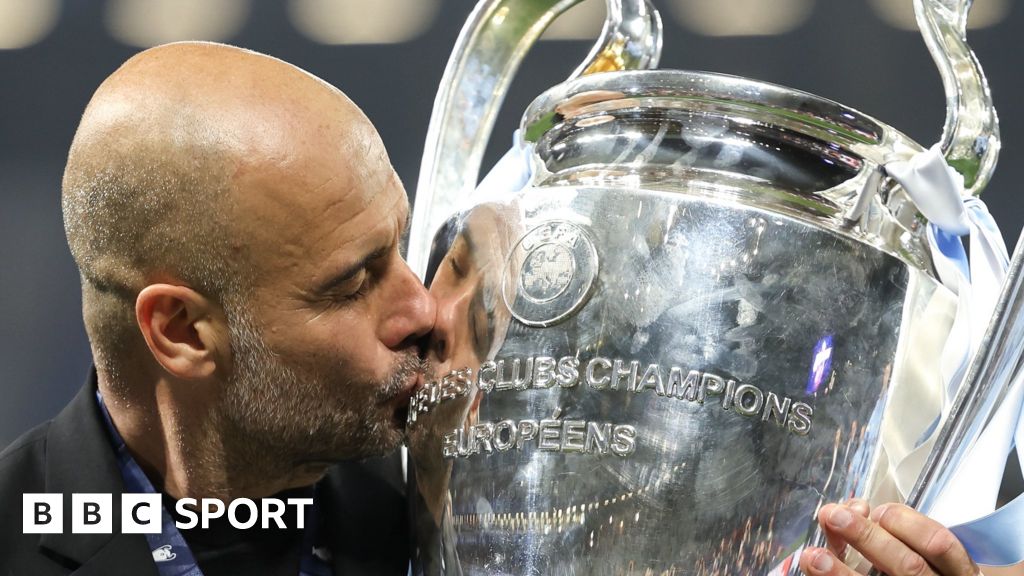Guardiola has pushed football into new directions.
In 2008, the prevailing football concept was about solid, organised defensive structures, from which quick transitions were played. Guardiola was the pioneer in constructing a team built not to use the defence as a means of closing the game up, but rather as the starting point of attack.
“He is the first coach to start working on what is theoretically called ‘the construction phases of the attacking game,'” explained Pep Segura, a former sports director of Barcelona, and perhaps the person who has studied most the influence and legacy of Guardiola.
“He starts by working the exit phase [the building from the back] and then the construction phase, what happens when the ball gets to midfield. He developed those two and started working on the third, preparation phase of the last pass.”
His demands are based on simple principles. Keep possession, play it simple and play it fast.
And sometimes it can come at a price.
Bernardo Silva has admitted in the past to some Portugal team-mates that he has frequently become tired at Manchester City because of the constant repetition and exhausting demands, although it is these measures that have taken him to the level that he is today.
Guardiola is like the schoolteacher that you only appreciated in later years but hated at the time because he demanded so much more of you.
Not all players grow under his intensive training demands. Those that progress will do so because they learn a better reading and knowledge of the game, better positioning, and better support for team-mates.
There is an enormous psychological pressure on the player to do what he must for the team. In that, we see one of Guardiola’s greatest attributes: his ability to change the mentality and thinking of those players that have no desire to be changed.
Since leaving Barcelona, he has coached Thomas Muller, Franck Ribery, Silva, Kevin de Bruyne, and Jack Grealish, all of whom – despite their forceful personalities – have bought into his philosophy.
Dani Alves once said of Guardiola at Barcelona: “If Pep had told me to jump off the third tier of the Nou Camp, then I’d jump because I’d think there must be a good reason for it.”
Guardiola is constantly on top of every situation, always correcting, always demanding more. Sometimes, his players can get frustrated. It happened with De Bruyne during the emphatic Champions League semi-final win over Real Madrid in May. At one point, the Belgian lost possession, and Guardiola expressed his disapproval. Exasperated, De Bruyne shouted: “Shut up, I’m fed up with hearing your voice.”
That voice continues to cajole teams towards success. Each each club he has managed, Guardiola has moulded his ideas to fit, without ever giving up on his essence. The basic philosophy doesn’t change. Neither do the demands on his players.
He spends most of his waking hours planning ways to be one step ahead ahead of his opponents. His sleeping pattern is unconventional, with messages sent to his coaching staff at early hours in the morning. He often relies on long siestas during the day to recharge his batteries.
He spends most of the time indoors and his family have developed a routine. His wife Cristina continues running her shop in Barcelona and lives there with son Marius and daughter Valentina. Their other daughter Maria, an Instagram influencer, lives in London. The family get together with the use of a private jet.



